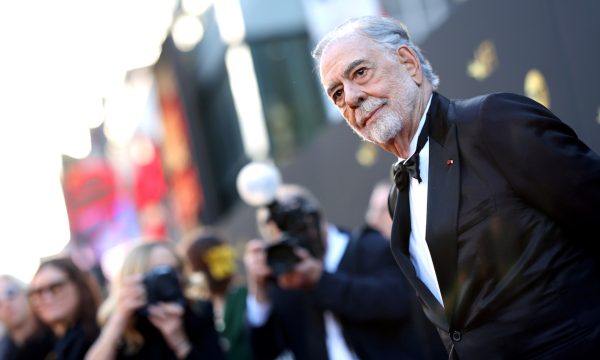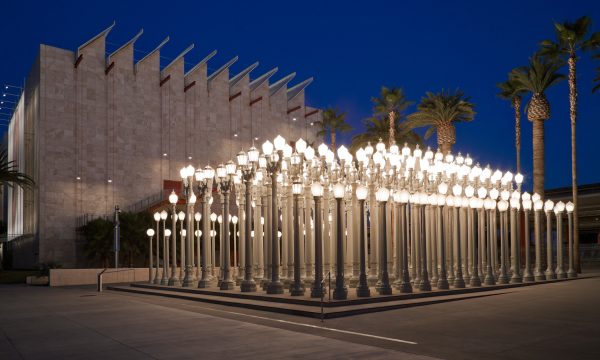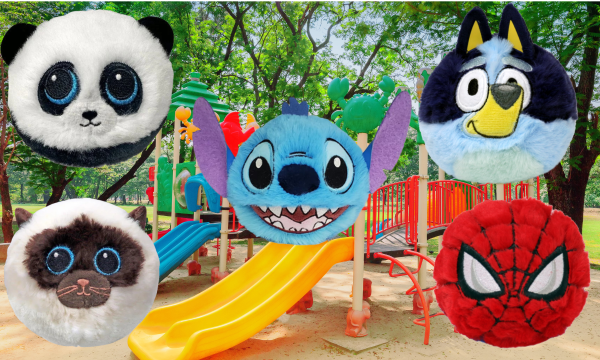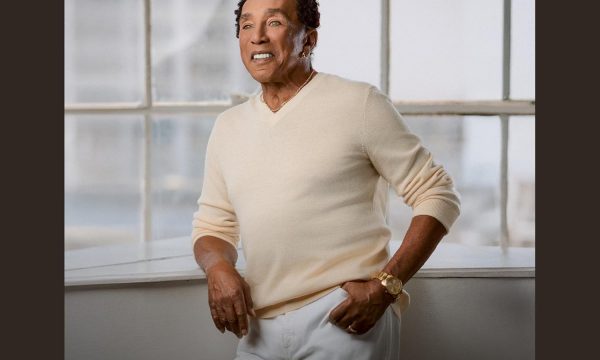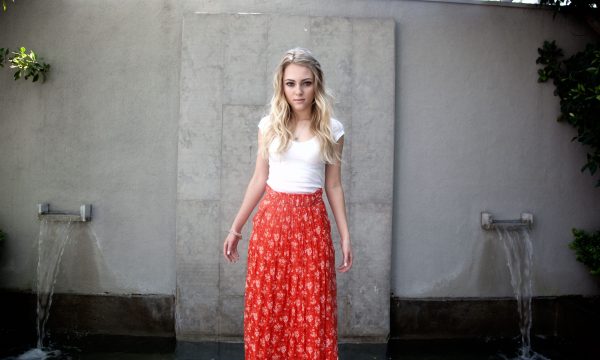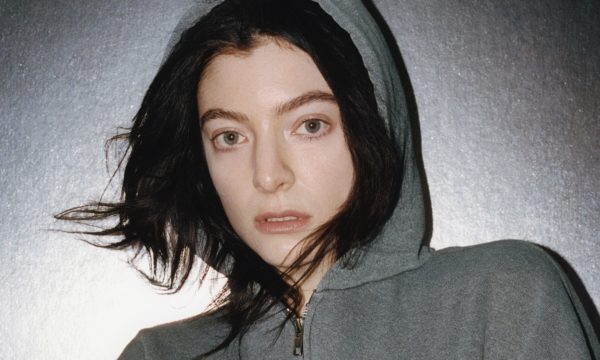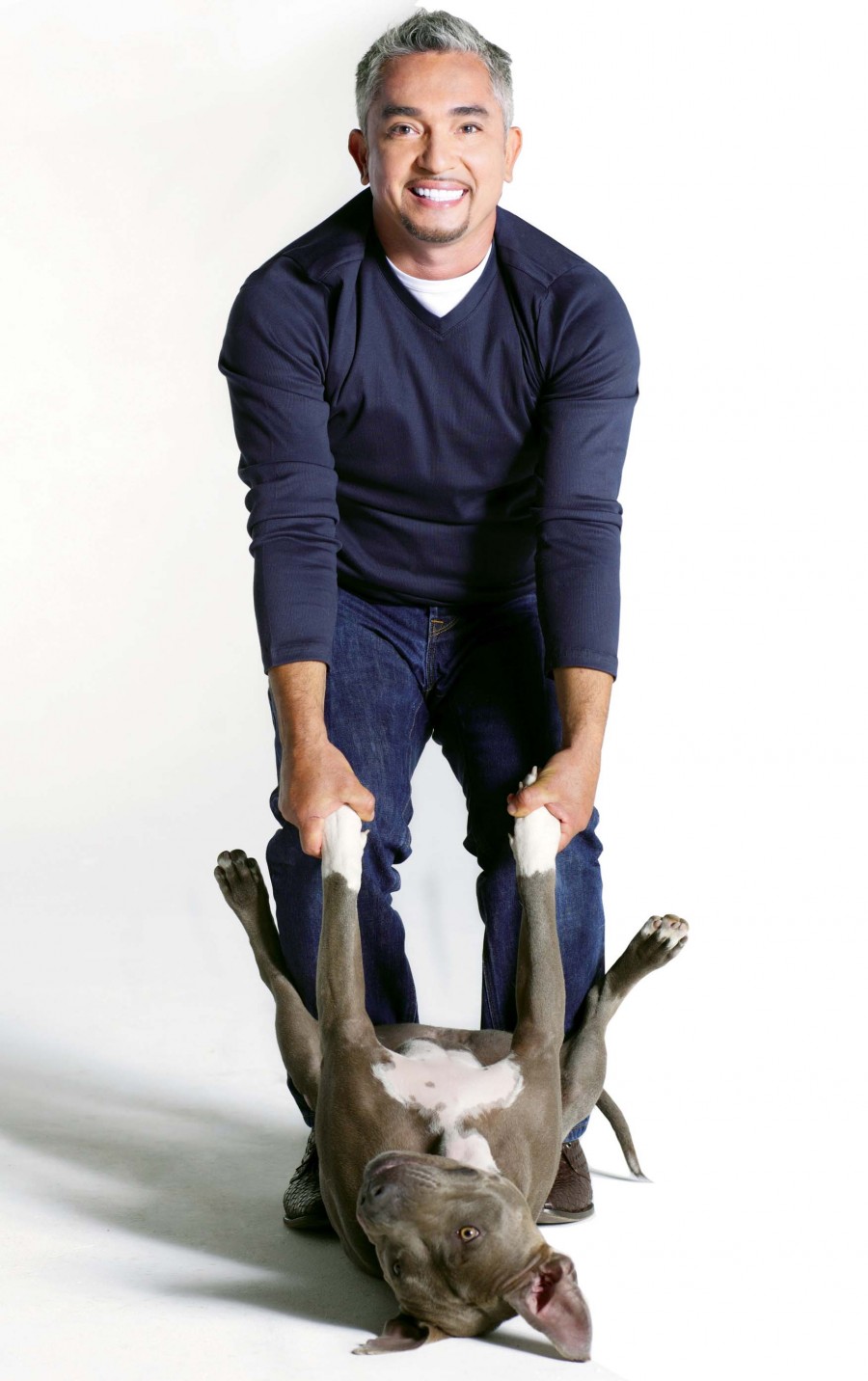 20 minutes before Cesar Millan took the stage of the Palms Casino Resort in Las Vegas, I stood in the lobby watching his fans pour in from all over the country. Smiles on their faces, talking to one another about how Cesar Millan had changed their lives. Known as the "Dog Whisperer," Cesar has entered the homes of millions, through their TV set, the pages of his best-selling books and personal training; rehabilitating dogs and changing owner's lives for the better. Now, for the first time, Nat Geo WILD brings to the small screen Millan’s live stage show that has traveled the world, in a two-hour special, Cesar Millan: Viva Las Vegas!, premiering Friday, Feb. 20, at 9/8c, before the return of Cesar 911 the following week on Friday, Feb. 27, at 9/8c.
20 minutes before Cesar Millan took the stage of the Palms Casino Resort in Las Vegas, I stood in the lobby watching his fans pour in from all over the country. Smiles on their faces, talking to one another about how Cesar Millan had changed their lives. Known as the "Dog Whisperer," Cesar has entered the homes of millions, through their TV set, the pages of his best-selling books and personal training; rehabilitating dogs and changing owner's lives for the better. Now, for the first time, Nat Geo WILD brings to the small screen Millan’s live stage show that has traveled the world, in a two-hour special, Cesar Millan: Viva Las Vegas!, premiering Friday, Feb. 20, at 9/8c, before the return of Cesar 911 the following week on Friday, Feb. 27, at 9/8c.
The written and spoken word cannot express Cesar's talent and ability to connect with the canine kingdom. LATF had the pleasure of sitting down with Cesar right after filming his first live TV show.
How did the show come about with National Geographic WILD, live? Was it your idea?
I love challenges. Sometimes I get into challenges I regret. But we still follow through. And I wanted to do Vegas for the last four years because this is the entertainment capital of the world. And I just want to see if I have what it takes to be Vegas-worthy, and if a dog guy can entertain people and teach people at the same time. So when Nat Geo WILD came to Asia—because I did a show in Asia similar to this one— they saw me on stage— and asked “Can we do a special?” I said, “As a matter of fact, I’m doing a show in Vegas. If you guys want to do it there, it would be a perfect platform.”
When you stepped onto the stage, what did you think? You’re a true success story, so was this realizing a dream?
When you rehearse there are no people there, so there’s no feedback; it feels dull, it just feels boring. But you still have to perform. But when people come, when people are there sitting down—you feel that energy, you feel accepted immediately, you feel loved immediately, you feel that people were waiting for you. It’s just a warmth that happens inside. You have to control your tears, because you’re there to entertain and the expectation is to learn. They see me as a guy who is going to teach them about how to deal with their dogs. And they don’t know that I can actually make them laugh. They don’t know that I can actually teach them through humor.
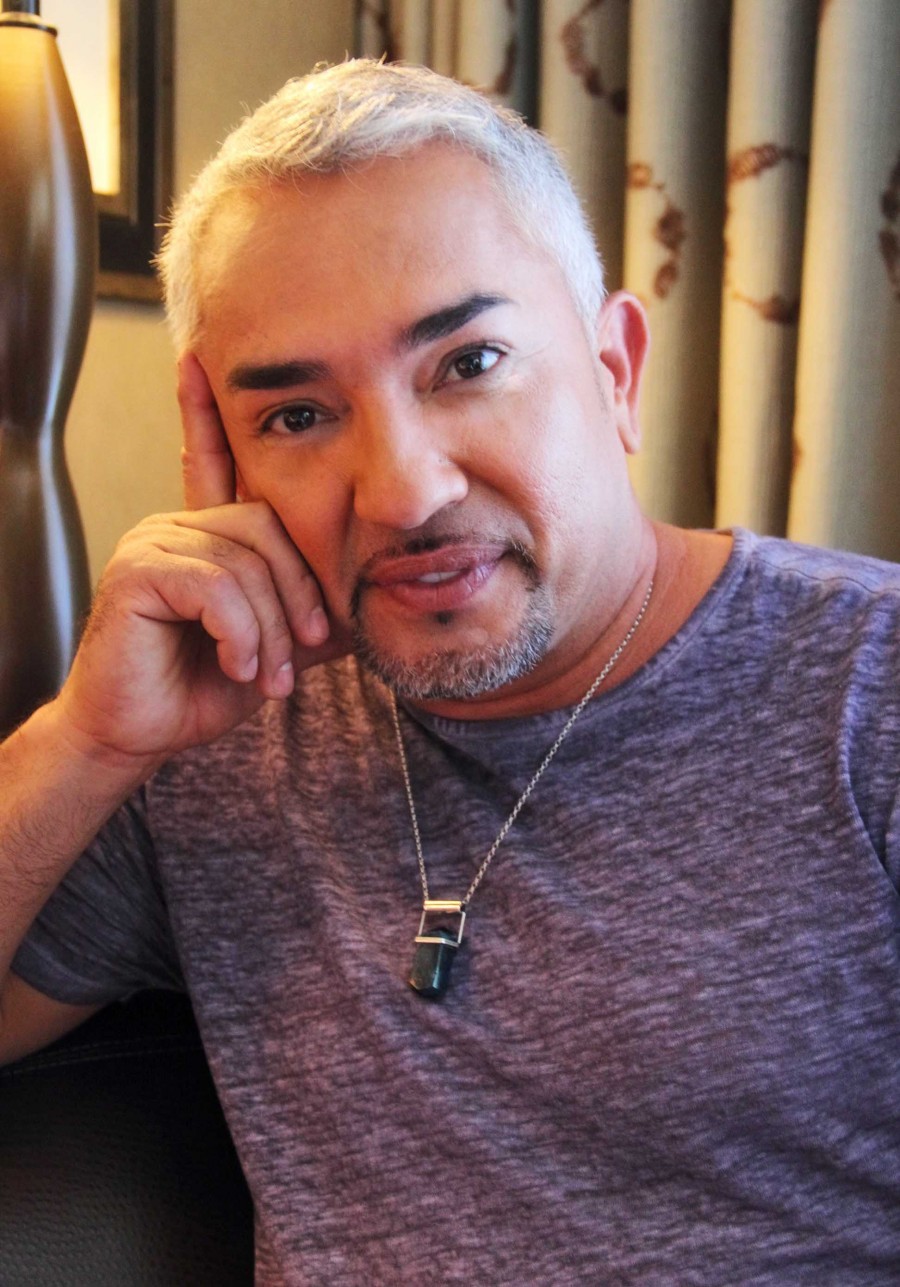 Through twerking.
Through twerking.
(laughs) I did a little, yeah. I think twerking definitely worked this time. And so the feeling is incredible—the feeling of the people, couples holding hands. And for a lot of people, this is their birthday gift. They wanted to see Cesar Millan Live.
A lot of people have read your book, we've learned about your life story. Growing up on your grandfather’s farm with dogs always around you, when did you really know that you had these unbelievable instincts and animal connection?
I said in the show, “I had no idea that I have something to offer to the world.” Because I grew in a place where I learned everything I know. I grew up in a place where I must gain the trust of dogs, I must gain the respect of dogs, I must gain the loyalty of dogs. They never told me they were going to give it to me just because I give them food. I grew up with that philosophy, so I never thought that what I did or what I knew was special or different and can actually serve a bigger purpose. So when I came to America, that’s when I realized that (laugh) I actually have common sense to offer and eventually turn into a television show that potentially turns into books. Common sense doesn’t become so common in America, that’s why it is a big production to open a door in America. It requires all these people to control a dog. And everything that I talk about in the show is a true story—the cat opening the door, me coming from Mexico, what I learned, what I know, the President of the United States dog walking.
People see themselves in the acts that I do. So for me, the way you change your life is you reflect about what you’re doing right and what you’re doing wrong, and then you transform. If somebody can make you aware, but you’re laughing about it, then you’re not going to be so hard on yourself. And we have to want to change, so the owners have to want to change.
Have you ever come across an owner who called you, but didn’t have the willingness to change?
Yes, of course. Humans are stubborn. Humans are also sometimes not ready to change. Not everybody is ready to transform. There’s nothing you can do. It’s definitely painful because you see the dog can change immediately, but if the human is not willing, that dog is influenced by that human’s energy. And so you have a lot of stubborn people, you have a lot of in denial people, you have a lot of hostile people that just don’t think they have to change anything about themselves.
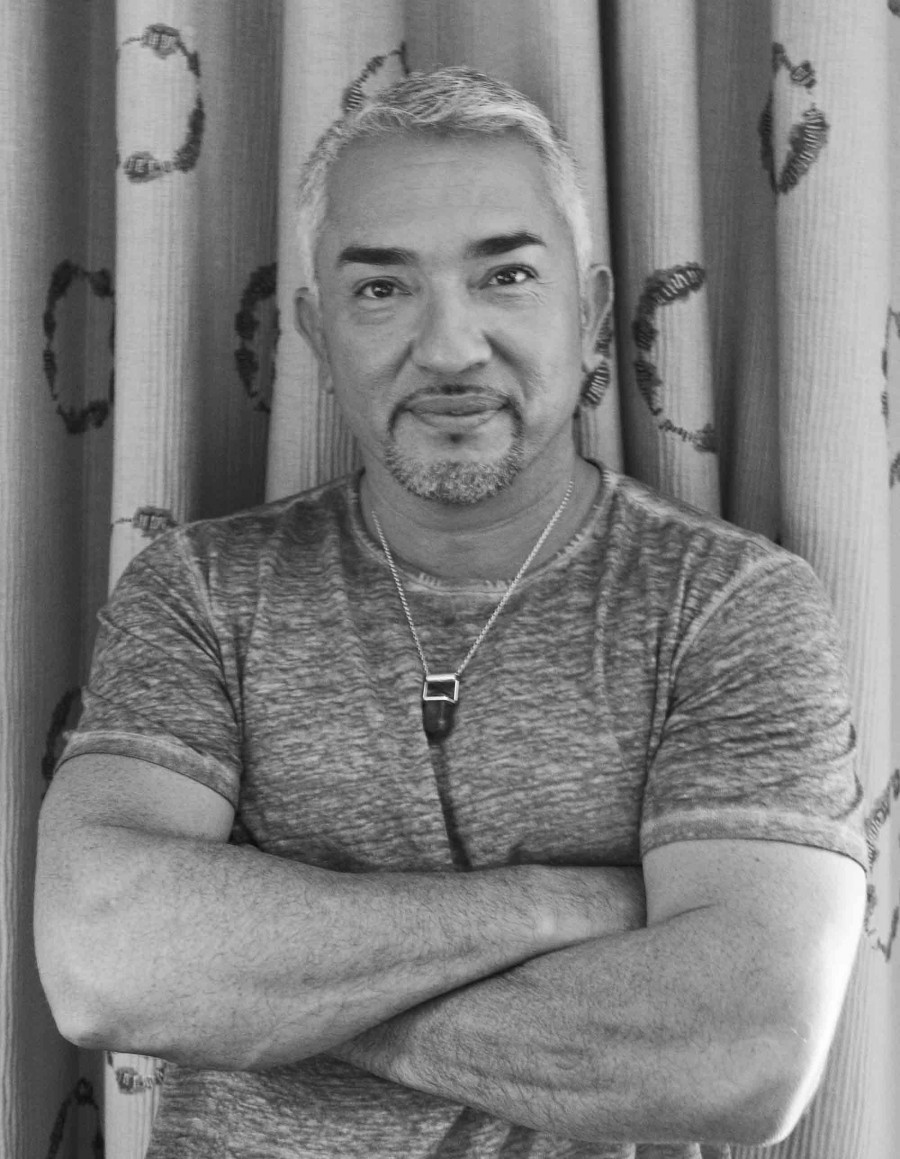 Do you consider yourself—and I think you are—a therapist of some kind both to humans and dogs?
Do you consider yourself—and I think you are—a therapist of some kind both to humans and dogs?
I think the dog is the therapist—it’s just the dog can’t speak. I just serve as a translator. It’s funny, because as a Hispanic, sometimes I use a translator person. But the dog is definitely the best therapist in the world. I mean, if you’re willing to listen to the best therapist in the world, he will help you, because the dog knows you very well. Nobody knows you better than a dog.
You've talked about the importance of energy, can you talk a little bit more about that?
Well, who you are in the animal world is energy, meaning they don’t know what you do for a living. They don’t know your ethnic background, age, if you’re poor or if you’re wealthy. What they know of who you are is, are you angry? Are you excited? Are you tense? Are you anxious? How you got there, they don’t know. So if you’re driving on the 405 and then you arrive home, they didn’t know you were in traffic for four hours. Right. They just know you’re tense, and that’s who you are to them. Simple as that. So dogs make humans become aware of simple life. We live a very complex life—we make life impossible. They make life simple. They live to the fullest. We don’t. We postpone things like that. I love the book 'Eat, Pray, Love' —that’s what a dog represents. You don’t have to go to India; you don’t have to go to Bali; you don’t have to go to Italy to live that energy that she lived. The dog represents that; he enjoys the moment—that’s meditation, that’s Bali. Food—nobody enjoys food better than a dog. It could be the same kibbles, but for him, it’s just spaghetti in Italy. And the romanticism that she finds—the best relationship you’re going to have is with a dog. It’s pure. It’s not because you have money, it’s not because you’re beautiful—it’s because he loves for who you are.
It’s true. I don’t think I experienced true love until I adopted my dog.
Yeah—pure.
Hopefully, I think she loves me too.
(laughs) It’s mutual. Whatever you share is mutual. You share anxiety, she gives you anxiety back; you share excitement, they give you this, right. They give you excitement.
You talk a lot about the Mexican dog vs. the American dog. And it is so true that the American dog is really a child to us.
Well, they’re getting married nowadays. They get bar mitzvahs and stuff like that. (laughs) They get Sweet Sixteens . (laughs) Dogs get to—if the person dies— keep the wealth.
And you live in Studio City. Los Angeles is a very big, pet-friendly city. Is that why you live there?
This is the truth. My destination when I came to America was Hollywood or Disneyland, because that’s where 11:27, right. Nobody says Chicago, you know what I mean? Nobody says New York. So when I grew up, my destination was Hollywood or Disneyland. So I live in Los Angeles because of that. Then I realized that Los Angeles is the maker of television, now that I am on TV, that’s the place to be.
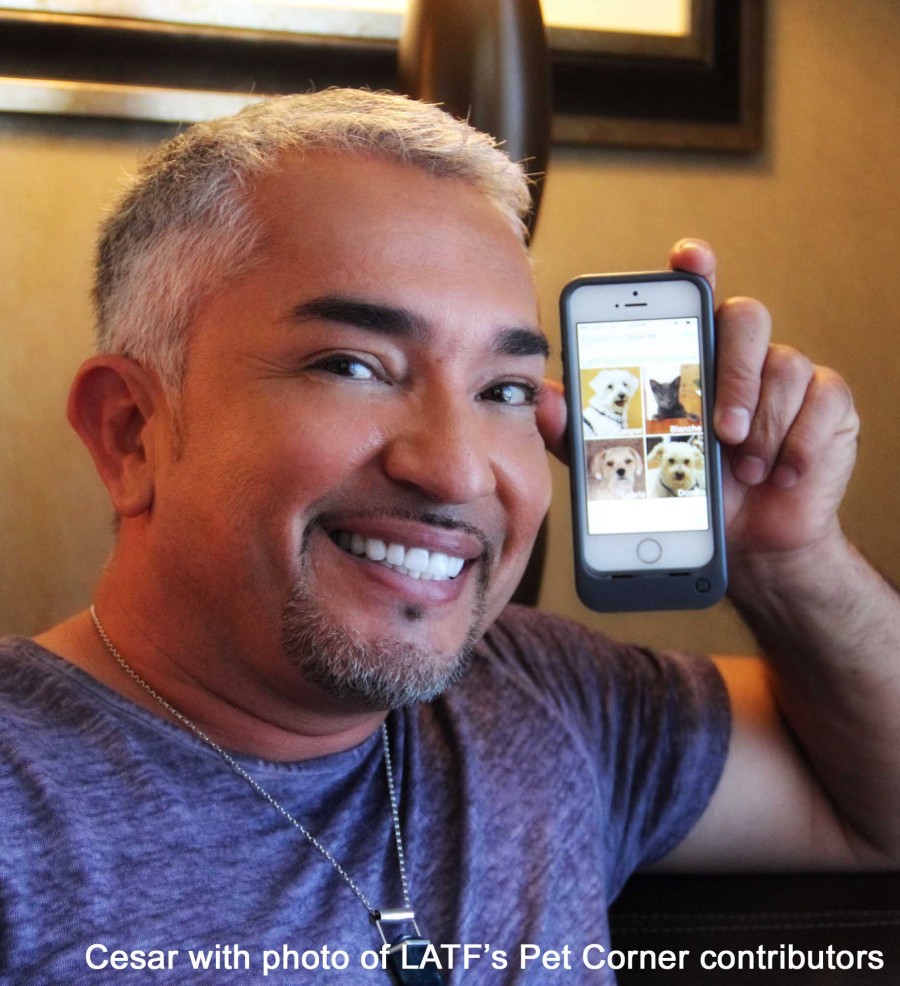 Can you talk to me about the Cesar Millan Foundation?
Can you talk to me about the Cesar Millan Foundation?
The concept is very simple: It’s about education—first and foremost, children. I think I’m going to make a bigger impact if we start a kindergarten or a preschool, where kids don’t know the difference between a Rottweiler, a pitbull, and a German shepherd. For them, they’re all dogs. And so to educate them about the energy of dogs—to educate them about the meaning of leadership; the meaning of fulfillment; the meaning of nose, eyes, ears; the meaning of follow, play, explore—if they know this at an early age that becomes their bible. That becomes their constitution. So then you create a generation that knows how to fulfill the life of a dog. They’re not going to alter the behavior of a dog; they’re going to honor each other. So it’s about honor. It’s about respect. It’s about integrity. It’s about loyalty. Most kids hear the word “doggy” or most kids hear the sentence, “Ask if you can pet them.” Right. You need to be a dog lover. It scares me when I see kids walking in that line. Because if you’ve ever seen when teachers bring kids from the school to park, they always have a line. And the kids have to hold onto the line. And then if you pass with a dog, other kids reach out to the dog. That’s dangerous. That’s so dangerous. They want to touch, and then they give eye contact. So if they do that to a dog that’s scared, they’re going to make the dog run away or actually bite. So kids are taught that affection is what you do when you see a dog. But if you give affection to the wrong dog, it’s going to be the wrong outcome. So the Mutt-i-grees Curriculum I created with Yale University—and I also funded it—is going to focus on that to prevent the next generation from making that mistake. Also, for me, it’s a big deal to encourage America to—at least for a matter of 10-15 years, the spay-neuter campaign should be mandatory. Because when you kill 4 to 5 million dogs you use that spare money to kill dogs. We’re all killing them. So how do we stop this killing? Spay/neuter, because once you spay/neuter there’s no more population issue. So you nip it in the bud over here. You stop at the source. Then it’s adoption, rescue, adoption, rehab, and rehome, so I help shelters to understand how to pair humans with dogs. It’s called compatibility. They have a beautiful contract that you have to follow, but they also have to understand the energy contract. Not just because they have a backyard and the dog can’t escape should you give that dog. The dog has to be compatible for that family. So now I also educate shelters and the rescuers.
That is extremely admirable.
That’s where most of my money goes—to the organization. You’re not going to take too much money with you when you die, but you’re not going to take nothing when you die. So if you can make a difference with what you make and you can involve people to make a big change, a big transformation in the world—I think that is what the world needs right now.
By Pamela Price



